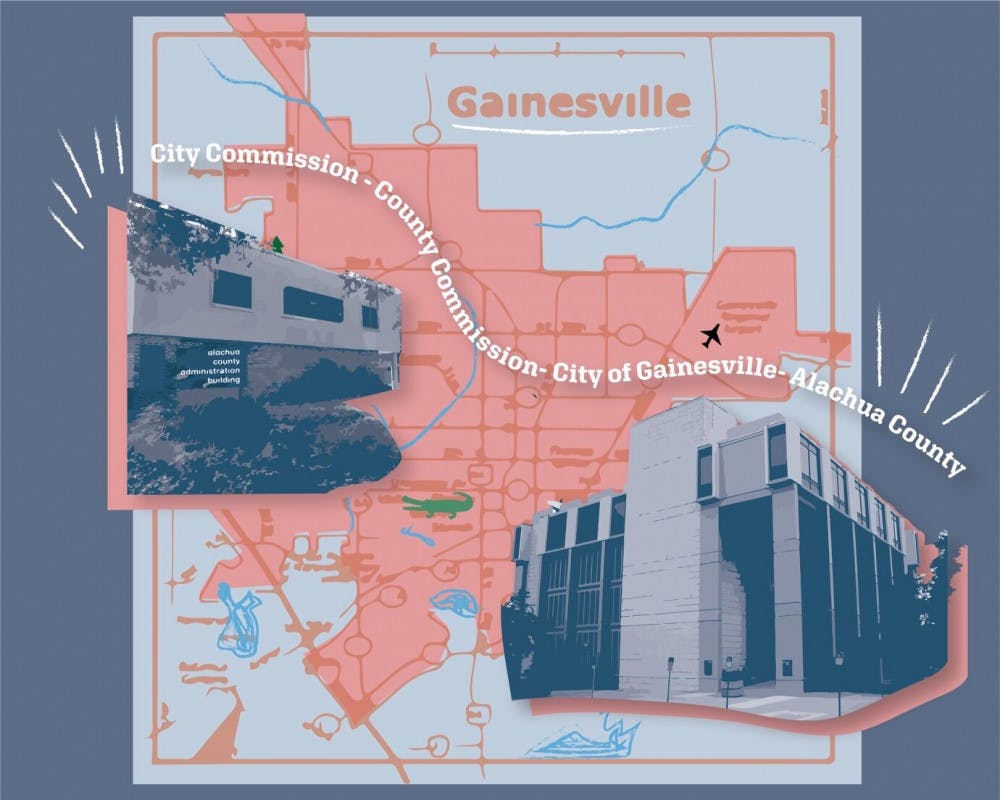The Gainesville City Commission voted unanimously to both sell the Gainesville Regional Utilities worker radio system to Alachua County and move forward with contract negotiations for a solar plant in Archer.
The commission discussed the solar plant Feb. 16 and approved pursuing an agreement with Origis Energy, a solar company that provides energy for Tallahassee. Now, contract negotiations are in motion.
With the solar plant, Gainesville could be running on almost 80% renewable energy by the end of 2024, according to Harvey Ward’s calculations during the Feb. 16 meeting. This would be more than any Florida city, he said.
Several residents voiced concerns about buying the solar deal, considering GRU’s ongoing debt issues. However, Mayor Harvey Ward pointed out the city has to buy power from somewhere as long as it provides municipal utilities. He doesn’t see why it shouldn’t be green energy, he said.
“We have to purchase megawatts from someone,” Ward said. “Or else we have to turn the lights off.”
However, residents’ caution was also shared by Commissioner Cynthia Chestnut, who originally made a motion not to accept the solar contract. The motion failed due to lack of a second from the others.
Chestnut’s central concern comes from the fact that Origis is legally allowed to redact parts of the contract currently, she said. According to Florida law, solar prices are considered trade secrets that the company can hold back in order to stay competitive with other solar providers. The commission has a rough estimate from Origis, but no exact prices.
Chestnut doesn’t think going in blind is a good idea, she said. She sees similarities to the biomass plant deal in 2017, which plunged GRU further into debt. The plant is often traced back to high utility rates in Gainesville.
“I feel like this is biomass number two,” Chestnut said.
Still, she voted in favor of approving negotiations once her original motion failed.
On the flip side of the debt coin, GRU’s radio system will go to Alachua County for $8 million, paid over the course of five years. Deal negotiations have been ongoing for the past two years to help streamline radio communications, said county spokesperson Mark Sexton. But if it helps with the city’s debt, it’s a win-win scenario, he said.
With intensifying utility rates and increasingly unhappy residents, tensions culminated in demands from state representatives for the commission to find a way to address the debt by the end of the year.
The radio buyout is important to alleviating some of the debt, said GRU business services officer Lewis Walton. Eight million dollars still doesn’t quite cover the amount of debt related to running the radio service, but it comes close, Walton said.
But the radio is just one aspect of the overarching GRU debt issue, said Commissioner Casey Willits.
“This is an opportunity,” Willits said. “But it’s not a complete fix to the problem.”
Correction: This article has been updated to reflect that the county did not organize the deal to alleviate the city’s debt. The Alligator originally reported otherwise.
Contact Siena at sduncan@alligator.org. Follow her on twitter @SienaDuncan.

Siena Duncan is the Fall 2024 Editor-in-Chief of the Alligator. She's interned for the Salt Lake Tribune, the Tampa Bay Times and POLITICO. In her spare time, she loves to take walks to see the cows by her apartment and add more to her sketchbook.






